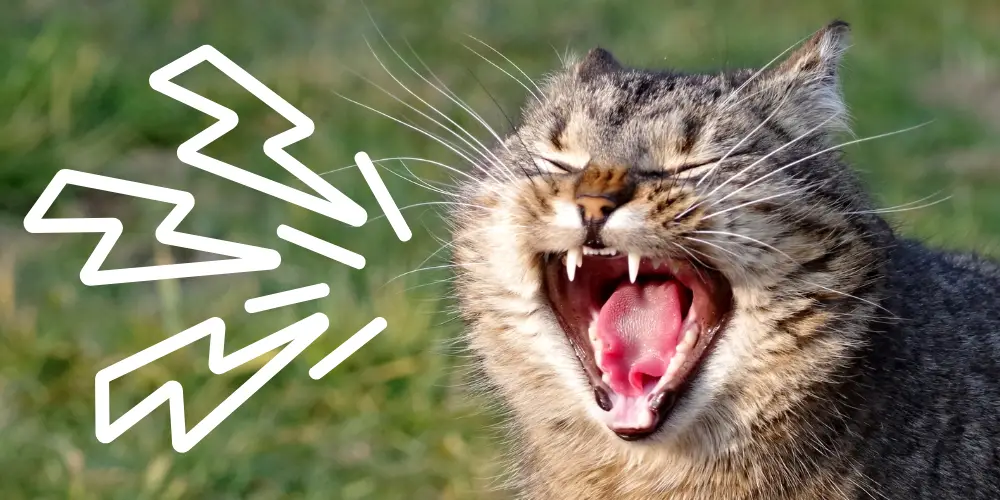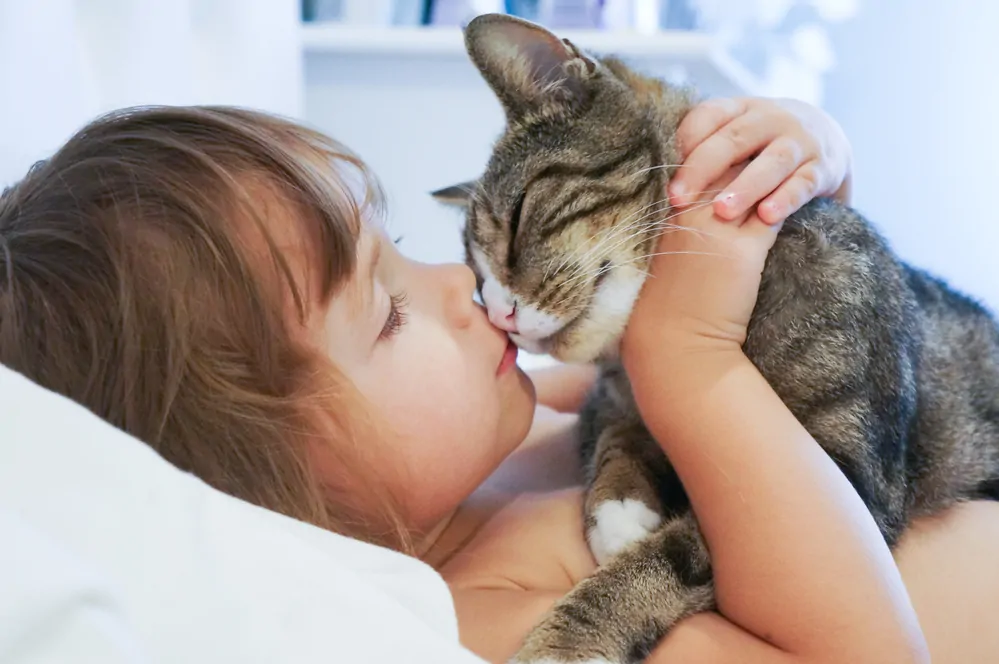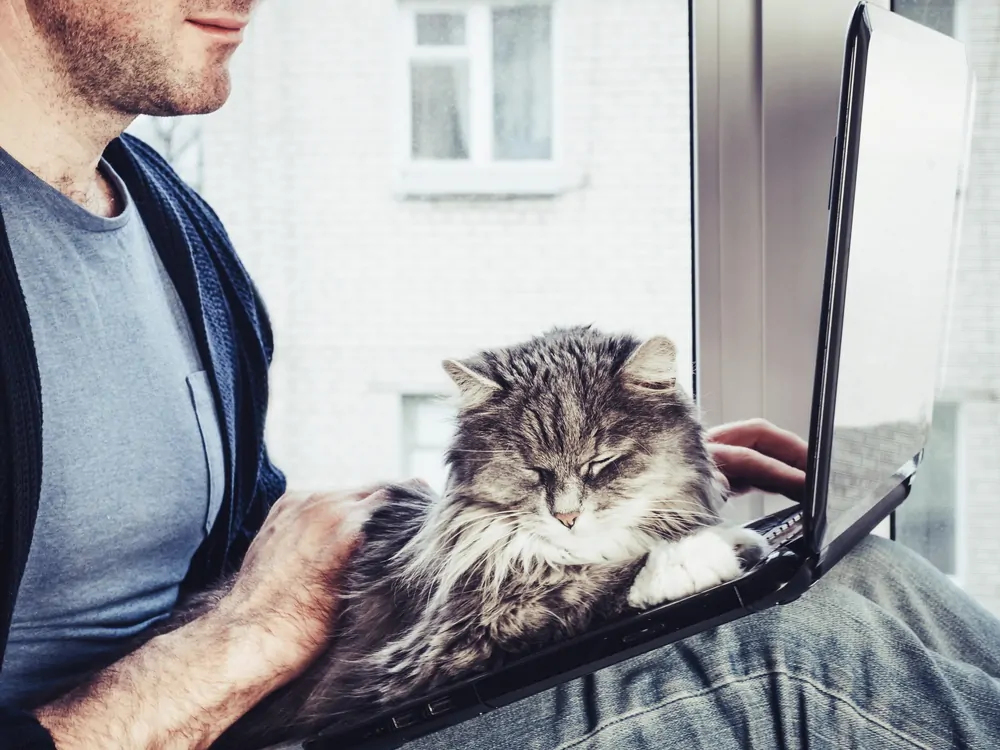Cats yowl for several reasons, including a mating call when the heat starts to bloom. But why do cats yowl before throwing up?
Cats yowl before throwing up to complain about their bad stomachs. Cats yowl for the same reasons people might groan before doing the same. This yowling is due to eating something it shouldn’t have or a furball.
Meowing is common, but yowling only happens for several reasons- none of them are positive.
Is it Normal for My Cat to Yowl Before Throwing Up?
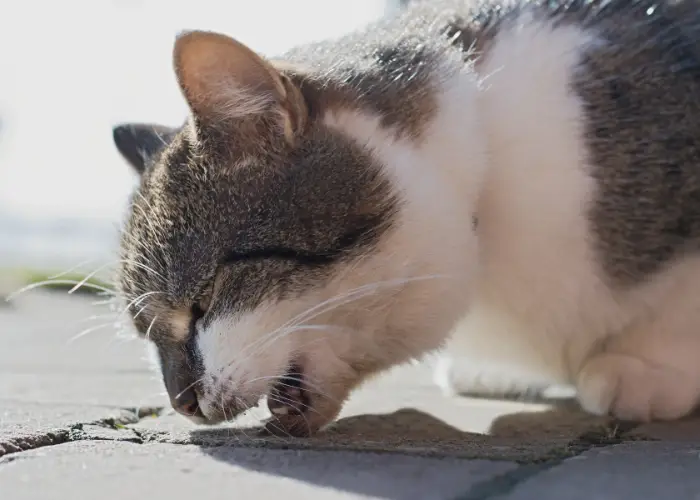
It is normal behavior to a certain extent. However, cats shouldn’t be throwing up a lot, and if it becomes a frequent behavior, it’s time to take it to the vet- particularly if it isn’t clear why it’s happening.
Throwing up anything other than a hairball or the remains of an unfortunate mouse should be paid attention to.
Maybe the food has gone bad?
Maybe it has gotten into something that it shouldn’t have.
For one quick example of getting into things they shouldn’t, fake Christmas trees are an easy target for cats, as they like to chew on and sometimes eat the needles.
You’ll see those later in a slightly chewed state, blent into a puddle on the floor if it persists, and will likely be preceded by some yowls.
Do Cats Yowl Every Time they Throw Up?
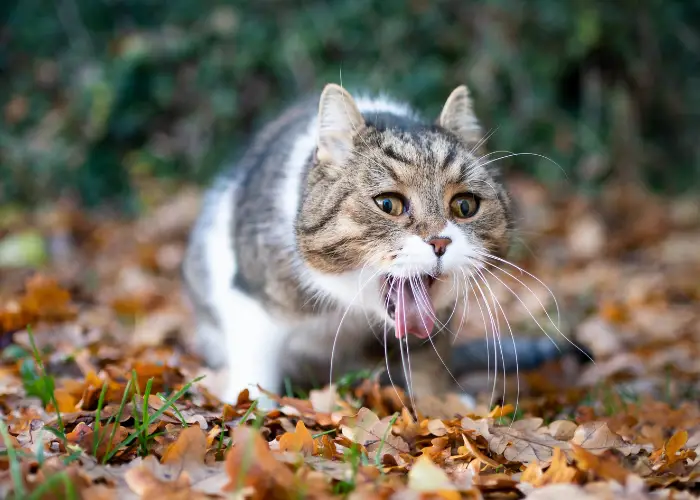
Cats don’t cry or yowl every single time they throw up. They may sometimes give no forewarning that it is about to happen.
Other times, they may not yowl but will wretch in what appears to be a painful process for a few moments until they throw up. Again, there may not be any forewarning that this is about to happen either.
So, though it is common for them to give a couple of yowls before throwing up, it doesn’t have to happen every time. If a cat that typically doesn’t yowl does so, it may indicate that this episode feels lousier or less tolerable than others.
Though the topic of conversation isn’t pretty, think about how different people handle throwing up. Some folks can do it casually, while others sound like they’re trying to carry a piano all by themselves before throwing up.
Some people make a lot of noise getting there; others don’t. The same is true with cats, except that all cats will yowl if they feel terrible enough.
What a Yowl Sounds Like
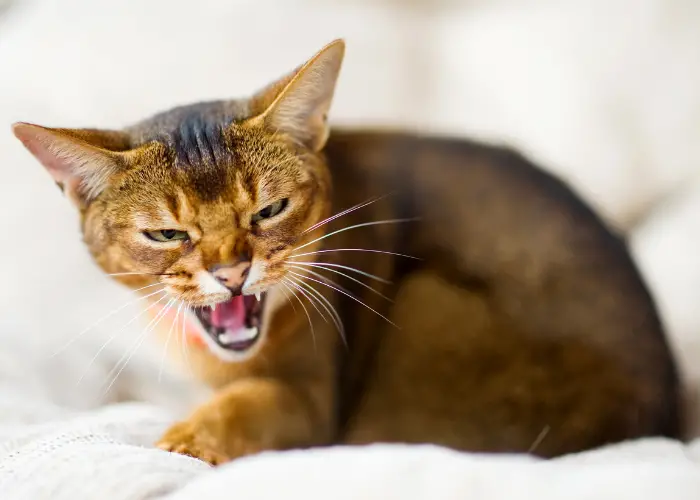
When a cat decides to yowl, it’s a much different noise than a typical meow. It combines a cat growl and a bored-sounding meow to describe the sound.
Though they open their mouths to make this noise, it sounds more muffled, as if the cat’s mouth isn’t as open as it normally would be during a normal meow sound.
A Yowling Position
When they do make this noise, their posture is also different than normal, especially when it is related to throwing up. Their head is often low to the ground and stretched forward. The rest of the body is crouched, yet still standing on all fours.
Other Reasons for Yowling
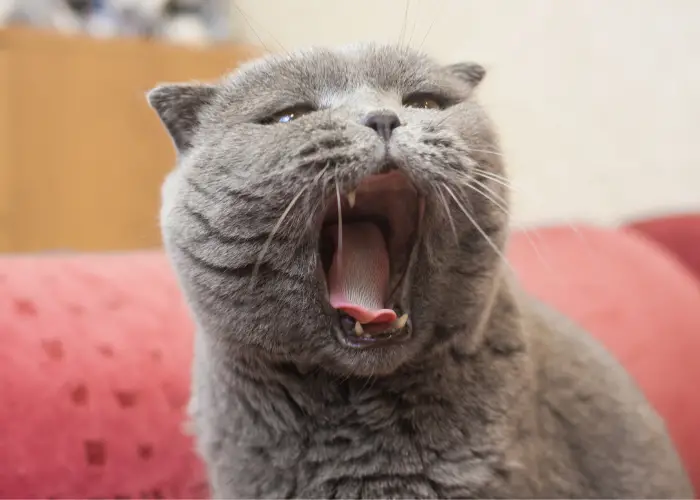
Overall, yowling is associated with discomfort, complaints, or, as mentioned above, being in heat. However, cats in heat make a lot more noise than simple yowling, and the reasoning is often clear why they’re doing it, so we’ll set that reason aside for now.
The two to be concerned about as an owner are the discomfort or complaints categories.
Cats Yowling from Discomfort
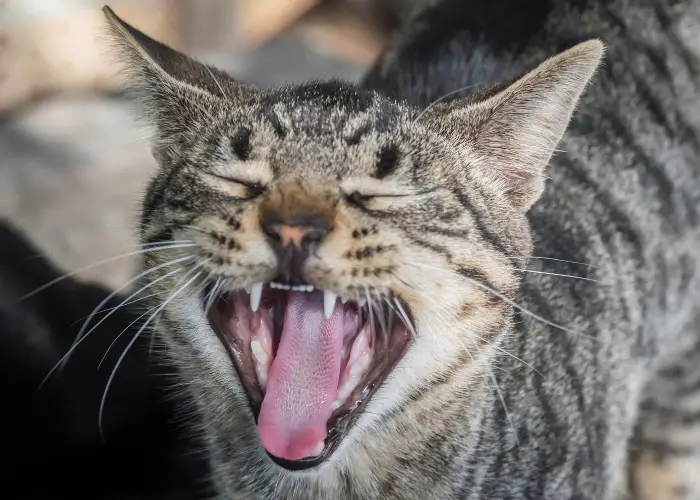
When cats yowl from the discomfort, it is often before an event (such as throwing up). After it feels better, the yowling stops, and life returns to normal.
However, if it continues, there could be a deeper issue to which the cat is trying to alert you. Remember, cats are incredibly tough animals, rarely complaining about how it’s feeling or giving any inkling that it has a problem.
If a cat seems to be yowling for no apparent reason- it isn’t. There’s always a reason, but the problem is you can’t see it, and they can’t further describe the issue to you.
It’s time to take the cat to the vet to try and figure out what the problem is should this occur. The best-case scenario is that it simply has a tummy ache; the worst case is that it could suffer from cancer or other life-threatening, painful conditions.
Other complicated organ conditions or arthritic joints, or physical injuries can also cause this, alongside other, more treatable problems such as parasites or simple viruses.
Cats Yowling as a Form of Complaint
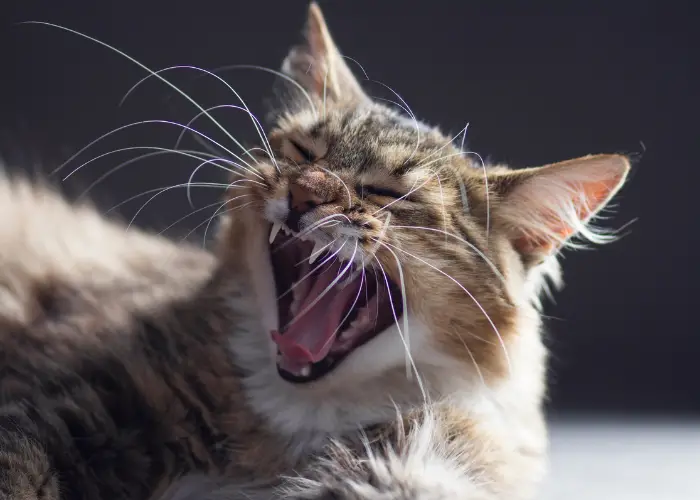
When cats do complain, it can come in a few forms, and yowling is among them.
An intrusion by another cat into its territory may kick off a brief bout of yowling, but as things escalate, so makes the noise. They may begin with yowling but may work their way up to screaming if a fight is about to ensue.
Some cats might yowl when handled when they don’t feel like having extra attention. Perhaps someone is trying to show off their timid cat to a stranger; this may result in a couple of woeful-sounding yowls. In this sense, it isn’t a physical issue but rather an emotionally launched yowl.
In some cats, loneliness or stress can cause an individual to express it through a couple of pitiful-sounding yowls.
But due to the incredibly independent nature of felines in general, loneliness is rarer than other reasons. On the other hand, all animals deal with stress, and cats might sometimes express it through yowling.
Final Thoughts
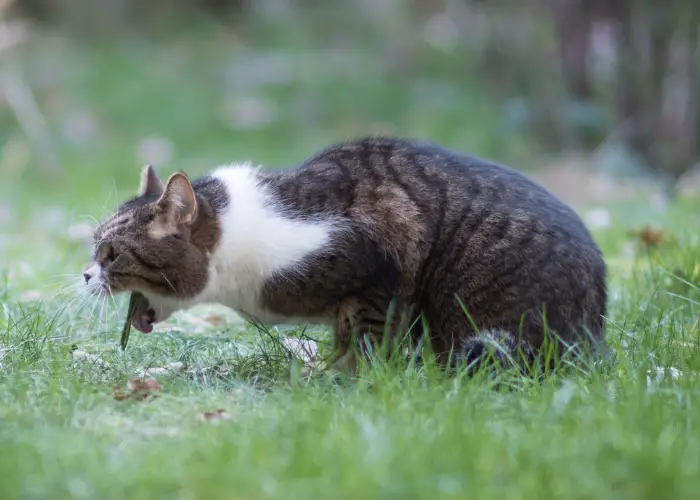
There’s never a happy reason why cats yowl. 100% of the time, a yowling cat is an uncomfortable cat.
The only difference is whether the cat is feeling physically uncomfortable, such as when they are about to throw up, or emotionally uncomfortable, such as being intruded upon when it just wants to be left alone.
The difference between the two can be discerned with simple observation in most cases, and if you can’t figure it out, the cat’s vet will certainly have a good shot at it.
Fortunately for cat lovers (and the cat), most of the time, it is a harmless noise that will precede throwing up, and that’s the end of it.
So, if you hear the woeful sound of your cat yowling in the kitchen while you lay in your bed at night, watch your step in the morning!

